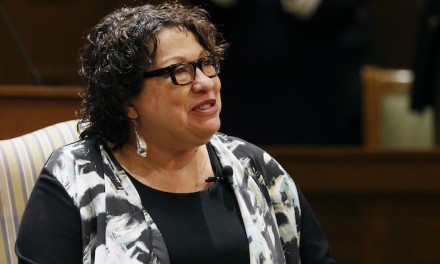Since the start of the coronavirus pandemic, some Democratic-led states have sought to provide state-funded COVID relief for undocumented immigrants who were left out of federal stimulus aid.
New York’s legislature recently allotted $2.1 billion in the state budget for undocumented workers who lost employment or income during the pandemic.
California is home to nearly 2 million undocumented immigrants — nearly twice the size of New York’s undocumented population. It created a $75 million disaster relief program that Gov. Gavin Newsom announced last May to help undocumented immigrants and it expanded the state’s social safety net in other ways to help people who missed out on stimulus checks from the IRS.
“The pandemic brought this recognition of immigrant workers, including the unauthorized, as an important segment of the economy and workforce,” said Roberto Suro, associate director of the Sol Price Center for Social Innovation at the University of Southern California.
At a glance, it may seem like New York is spending more to help immigrants amid the pandemic, but policy advocates and policy experts say California is still a leader in creating long-term solutions to help its undocumented population.
How California’s efforts compare
Last May, California became the first state in the nation to provide state-funded COVID-19 relief for its undocumented residents by providing $75 million in one-time payments, ranging from $500 to $1,000, to undocumented Californians. An estimated 150,000 undocumented residents received payments.
Newsom last year also signed legislation expanding California’s Earned Income Tax Credit to those with Individual Taxpayer Identification Numbers (ITINs), which are used by undocumented immigrants who don’t qualify to receive Social Security Numbers. That change put hundreds of dollars in the pockets of low-income, undocumented Californians.
California is also providing one-time state stimulus payments, worth between $600 to $1,200, for undocumented residents with ITINs who qualify for the tax credit or who make under $75,000 a year. Additionally, since 2020, California has provided Medi-Cal coverage to undocumented children and young adults under the age of 26.
Under the New York legislature’s budget plan, the $2.1 billion fund would provide one-time payments of up to $15,600 for undocumented immigrants who lost work or income during the health crisis. The Fiscal Policy Institute, a nonprofit research organization in New York, estimates the fund would help up to 290,000 New Yorkers.
While $2.1 billion is a lot of money, New York’s effort is a “one-shot deal,” according to Suro. He added it’s unclear who would qualify for the maximum payment amount.
California is taking a more lasting approach to help its undocumented residents, he said.
“California has been doing things steadily that permanently open doors,” he said. “It’s a much more fundamental kind of policy change.”
Christopher Sanchez, a policy advocate at the Western Center on Law & Poverty, said the California Legislature has advocated for policies that would help undocumented immigrants during and prior to the pandemic.
This year those efforts include expanding Medi-Cal coverage for undocumented adults and seniors, which is estimated by the Legislative Analyst’s Office to cost the state $2.6 billion a year.
“California is ahead of New York when it comes to trying to provide resources to immigrants,” he said.
What are other states doing?
In a joint effort, the state of Illinois and the Illinois Coalition for Immigrant Refugee Rights, announced last October that it would provide $20 million in cash assistance to the state’s undocumented, citing that “undocumented immigrants contribute billions of dollars in state and local taxes.”
This year, Illinois became the first state in the nation to offer health care coverage for undocumented seniors.
Should California do more?
Alissa Anderson, a senior policy analyst, for the California Budget & Policy Center, said undocumented Californians have been shut out of thousands of dollars in federal stimulus payments and unemployment insurance benefits amid the pandemic due to their immigration status.
With the state expected to receive $26 billion in federal aid under the Biden administration’s American Rescue Plan, Anderson would like to see some of those funds go towards helping undocumented Californians, who faced disproportionate job losses during the statewide closures spurred by the pandemic.
“I think California absolutely can and should do what New York just did and provide more support to undocumented Californians and their families because they’ve been shut out of almost all federal support during the entire pandemic,” she said.
___
(c)2021 The Sacramento Bee (Sacramento, Calif.)
Visit The Sacramento Bee (Sacramento, Calif.) at www.sacbee.com
Distributed by Tribune Content Agency, LLC.
—-
This content is published through a licensing agreement with Acquire Media using its NewsEdge technology.



















Excuse me, but could any sane person not realize that flooding EVERY & ONLY White countries with MILLIONS of non-Whites and telling everyone to “assimilate” to create a blended humanity is White GENOCIDE?
Africa will still be full of Africans.
Asia will still be full of Asians.
Only White children will suffer from this insanity.
That’s White Genocide.
Except they don’t call it GENOCIDE when it’s done to White children.
They call it “diversity”.
Diversity means chasing down the last White person.
Buying the vote for a one party / communist party in the United States. The beauty of illegal aliens for the Democrat communist party.
THAT IS WHY our borders should have NEVER EVER been left this open, to where 12+ million illegals could just flood in… PERIOD.
It’s not their money so they feel the can spend it on whatever hair brain project they can think up
It’s time for America to anti up and send these illegals so generously invited into the nation by liberals intending to pump up their voter base into areas that they would be welcomed. Let’s see . . .where does Nancy Pelosi, Chuck Schumer, the Clintons , Barack Obama, and the rest of the elites reside? Marin County . . .the Hamptons . .. Martha’s Vineyard . . .Delaware . . . .Sounds like great places to share the love. Let’s not overlook the gated communities that vocal Hollywood millionaire liberals shelter themselves behind either.
TO hell with that. IMO ITS HIGH time we not only deported EVERY ILLEGAL INVADER here, but KICK THE HELL OUT everyone of these illegal loving politicians! IF THEY LOVE the illegals so much, they can go LIVE WITH THEM IN THE ILLEGALS own country!
AND when we kick them out, STRIP THOSE folks of their US citizenship!
We the People do not owe illegals ANYTHING. Why you ask , because they are illegal invaders to the USA !